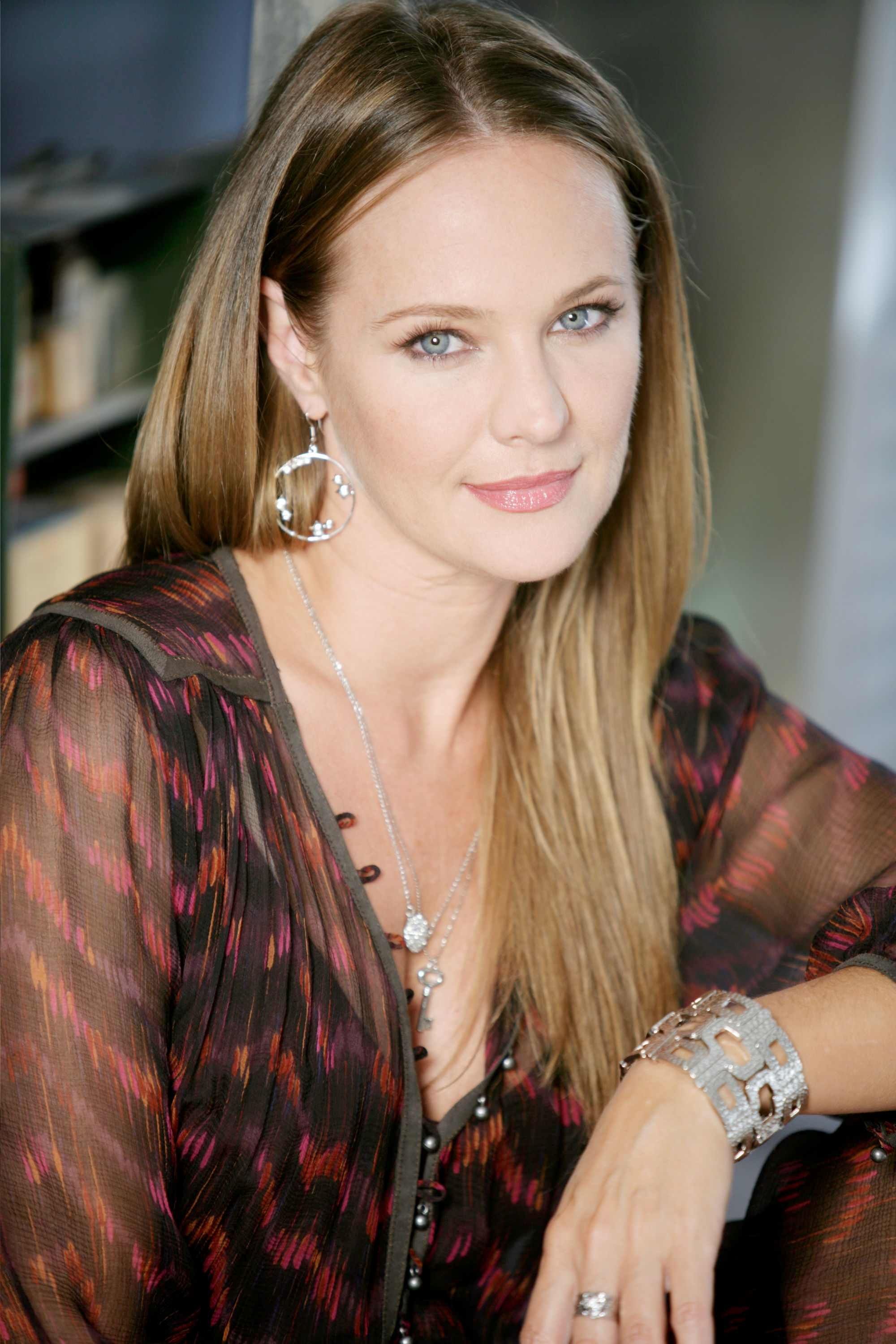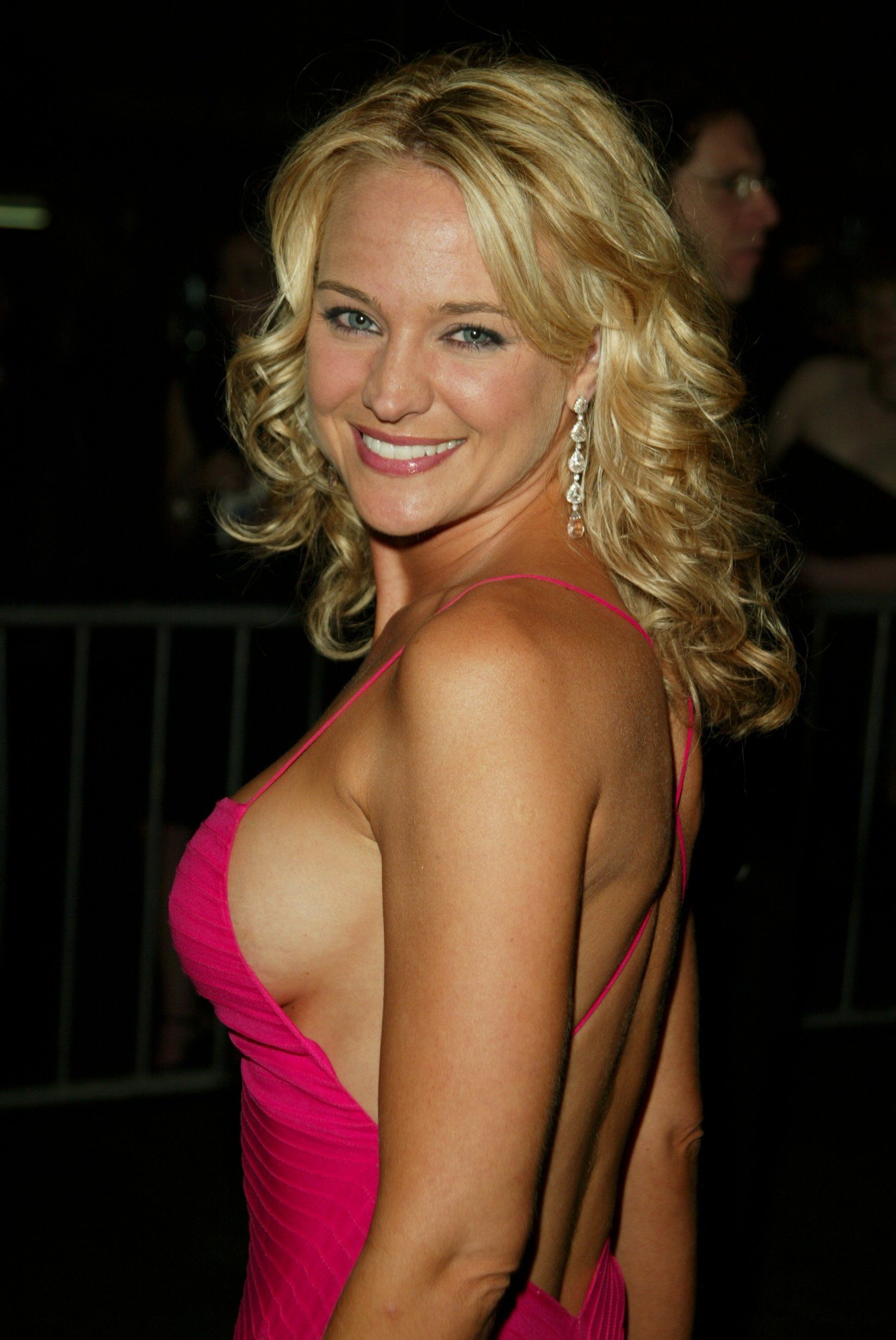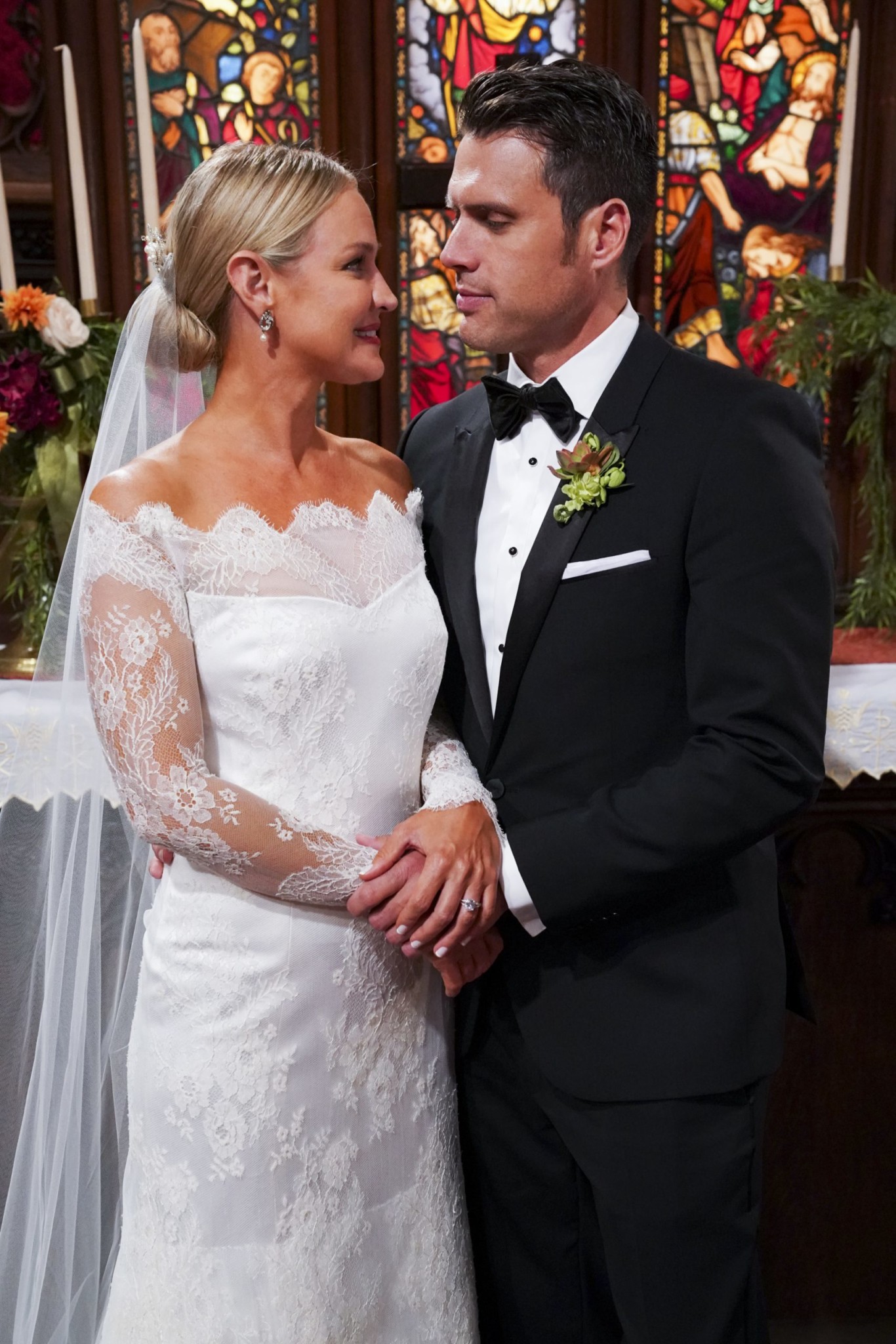Curiosity about public figures, especially those we see on our screens, is a very natural thing, isn't it? We often find ourselves wondering about the lives of people who bring characters to life, and one question that pops up quite a bit for fans of daytime drama is, "Does Sharon Case have a partner?" This particular inquiry, like many others we ask about well-known individuals, gets people talking and searching, looking for insights into their favorite actors' personal stories, you know, beyond the scripted roles.
It's pretty common, actually, to feel a connection to these personalities, seeing them almost as friends or neighbors, even though we only know them through their work. So, when a question like "Does Sharon Case have a partner?" comes to mind, it's really just an extension of that friendly interest, a way to feel a little closer to the people who entertain us so regularly. People just want to know a bit more about the real person behind the character, and that's a perfectly normal human impulse, in a way.
But setting aside the answer for a moment, have you ever thought about the way we even ask such a question? The words we choose, like "does," carry their own little rules and meanings, don't they? Understanding how these seemingly small words work helps us not just to ask questions clearly, but also to grasp the answers we find. So, we're going to take a closer look at the question "Does Sharon Case have a partner?" from a slightly different angle, focusing on the words that build it, especially that crucial little word, "does," and what it means for how we communicate.
- Lisa Thorner.https
- Is Steve Harvey A Trump Supporter.https
- What Ethnicity Is Kari Lake.https
- Is Will Smith Alive 2025.https
- Landon Clements.https
Table of Contents
- Understanding the "Does" in "Does Sharon Case Have a Partner"
- Why Do We Ask About Public Figures' Relationships?
- What's the Big Idea with "Do" and "Does"?
- When Do We Use "Does" – And Why It Matters for "Does Sharon Case Have a Partner"?
- Is There a Simple Way to Remember "Do" vs. "Does"?
- How Does This Apply to Asking About Someone's Partner?
- Why Is Proper Questioning Important for "Does Sharon Case Have a Partner"?
- What Other Ways Can We Think About Public Inquiries?
Understanding the "Does" in "Does Sharon Case Have a Partner"
When you hear or say the question, "Does Sharon Case have a partner?", that little word "does" is doing a lot of heavy lifting, isn't it? It's not just a random addition; it's a specific piece of language that helps shape the question. Basically, "does" is a form of the action word "do," and it shows up when we're talking about something happening right now, in the present time. The way we pick between "do" and "does" really just depends on the person or thing we're talking about, the one performing the action, you know? It's a key part of making our sentences make sense, especially when we're trying to find something out. So, in this specific question, "does" is there for a very good reason, and we'll get into that more as we go along, actually.
Think of it like this: every question needs a proper structure to be clear, and "does" plays a role in building that structure for certain kinds of questions. It's like a small but mighty helper word. It signals that we're asking about a single person or thing, not a group. So, when someone asks, "Does Sharon Case have a partner?", that "does" tells us right away that they're asking about one individual, Sharon Case, specifically. It’s pretty neat how these tiny words carry so much meaning, isn't it? This basic rule of language helps us form countless questions every day, making sure our inquiries are understood just as we mean them, more or less.
- P Diddy Cameron Diaz.https
- Grace Charis Onlyfans.https
- Apkcort
- Filmyfly Filmy
- Dan Bongino Wife Accident.https
Why Do We Ask About Public Figures' Relationships?
It's a pretty common human trait to be interested in the lives of others, particularly those who are in the public eye. When we watch someone on a show for years, they become, in a way, familiar faces, almost like extended members of our own social circle. So, it's not really a surprise that questions like "Does Sharon Case have a partner?" pop up often. We feel a connection to these actors, a sort of friendly bond that makes us curious about their real-life experiences, you know? It’s a natural extension of enjoying their work and feeling as if we know them, even though we probably don't. This curiosity is just part of how we connect with stories and the people who tell them, actually.
This interest goes beyond just idle gossip, in some respects. For many, it's about seeing the person behind the character, understanding their journey, and perhaps finding shared experiences or inspirations. We admire their talent, and that admiration often spills over into a desire to know more about their personal world. So, when someone types "Does Sharon Case have a partner?" into a search bar, it's often driven by a genuine, if distant, interest in her well-being and happiness, rather than just simple nosiness. It's about feeling a part of the broader story that these public figures live, isn't it? It’s a way of relating to them, even if it’s just from afar.
What's the Big Idea with "Do" and "Does"?
Alright, let's get down to the basics of "do" and "does," because understanding them is pretty key to speaking and writing clearly, especially when asking about something like "Does Sharon Case have a partner?" Both "do" and "does" are forms of the verb "do" that we use when we're talking about things happening right now, in the present. The main thing that decides which one you use is the "subject" of your sentence – that's the person or thing doing the action, you know? They might seem like small words, but they play a big part in how we put our thoughts together, making sure our questions and statements are grammatically sound, more or less. This distinction is something that many language learners work on, and it's quite fundamental.
Think of it this way: these words are like little helpers for other verbs, especially when we're forming questions or making negative statements. They're what we call "auxiliary verbs," which basically means they assist the main verb. For example, if you want to ask about someone's daily routine, you wouldn't just say "He work here?" you'd say "Does he work here?" That "does" is essential for making it a proper question, isn't it? The difference between "do" and "does" is a very important part of how we structure our everyday conversations, and it’s something we often use without even thinking about it, naturally.
When Do We Use "Does" – And Why It Matters for "Does Sharon Case Have a Partner"?
So, when do we pull out "does" instead of "do"? It’s pretty straightforward, actually. We use "does" when the subject of our sentence is a single person or thing, especially when we're talking about "he," "she," or "it." Think of "Sharon Case" as a "she," right? Because she's one person, a single subject, we use "does" to form the question about her. So, that's why it's "Does Sharon Case have a partner?" and not "Do Sharon Case have a partner?" The rule is quite consistent, you know? This little change helps make sure our sentences are correctly put together, which is pretty important for clear communication.
For example, you'd say "He does the dishes every day" if you're talking about one guy, or "She does her homework after school" for a single girl. And if it's an object, "It does seem a bit cold outside." In each of these cases, the subject is just one individual or one thing. This pattern holds true for questions too. So, when you're curious about Sharon Case's relationship status, the "does" just fits right in because she's a singular person. It's a very basic yet powerful rule that keeps our language flowing smoothly, making sure we ask things in a way that sounds natural and correct, more or less.
Is There a Simple Way to Remember "Do" vs. "Does"?
There's a pretty easy trick to keep "do" and "does" straight, you know? Just remember that "does" is for those singular subjects – "he," "she," and "it." If you can swap your subject for one of those three words, then "does" is probably the right choice. For instance, "Sharon Case" can be thought of as "she," so "does" is the way to go. On the other hand, "do" is for pretty much everything else: "I," "you," "we," and "they," or any plural group. So, if you're asking about a group of actors, you'd say, "Do the actors have partners?" but for one, it's "Does Sharon Case have a partner?" It’s a very handy little guideline that helps keep things clear, isn't it? This simple rule makes a big difference in how we put our thoughts into words.
Let's try a few more examples to really get the hang of it, in a way. You'd say "I do like pizza" because the subject is "I." Or "They do enjoy movies" because "they" is a group. But if you're talking about a single friend, you'd ask, "Does your friend like pizza?" because "your friend" is like a "he" or a "she." It's just a matter of matching the verb form to the person or people you're talking about. This little bit of grammar, you know, makes a big difference in sounding natural and getting your message across effectively. It's something we pick up pretty quickly as we learn to speak, and it just becomes second nature, apparently.
How Does This Apply to Asking About Someone's Partner?
So, when we bring it back to the question, "Does Sharon Case have a partner?", the use of "does" is absolutely correct because "Sharon Case" is a singular individual. If we were asking about, say, "Sharon Case and her co-stars," then we'd use "do" because now we're talking about a group: "Do Sharon Case and her co-stars have partners?" It's a subtle but important distinction that shapes how we ask questions about people's lives, you know? The grammar here is not just about rules; it's about being precise in our communication, especially when we're trying to learn something specific about someone. This grammatical point really helps us form questions that are clear and well-understood, more or less.
This same principle applies to any question you might ask about a single person's current situation. "Does he live here?" "Does she enjoy her work?" "Does it matter?" In each case, the "does" signals that the inquiry is about one person or one thing. So, the next time you hear or ask "Does Sharon Case have a partner?", you'll know that the "does" is there to correctly match the singular subject, Sharon Case, and to properly form a question about her current status. It's a very good example of how small words can carry a lot of weight in our daily conversations, isn't it? It just makes the whole communication process a bit smoother.
Why Is Proper Questioning Important for "Does Sharon Case Have a Partner"?
Using the right form, like "does" in "Does Sharon Case have a partner?", is pretty important for clear communication, isn't it? When we use the correct grammar, our questions are easier to understand, and we avoid confusion. Imagine if someone asked, "Do Sharon Case have a partner?" It sounds a bit off, right? While people might still understand what you mean, it doesn't sound quite as polished or as natural. Proper language use shows respect for the person you're speaking to or writing for, and it helps ensure your message gets across without any bumps. It's about being effective in how we share our thoughts and inquiries, you know, making sure our words serve their purpose well.
Beyond just sounding correct, getting the grammar right helps maintain clarity, which is really important in any form of communication. When you're searching for information online, a well-formed question, like "Does Sharon Case have a partner?", is more likely to yield accurate results because search engines are pretty good at understanding proper phrasing. It's a small detail that contributes to a much larger picture of effective interaction. So, paying attention to these little grammatical helpers, like "do" and "does," really just makes our conversations and searches a lot more productive, in a way. It’s a foundational piece of how we connect through words, apparently.
What Other Ways Can We Think About Public Inquiries?
When we think about questions like "Does Sharon Case have a partner?", it's not just about the grammar of the question itself, but also about the broader context of public interest and privacy. People are naturally curious about those who entertain them, and asking questions is a way to satisfy that curiosity. However, it's also worth considering the line between public interest and personal space. While it's okay to wonder, it's also good to remember that public figures, just like anyone else, have private lives that may or may not be shared with the world. So, the act of asking, in a way, is also a reflection of our collective interest in the lives of others, isn't it?
This kind of inquiry, you know, highlights how language helps us explore and understand the world around us, including the lives of well-known individuals. The question "Does Sharon Case have a partner?" is a simple construction, yet it opens up a whole area of discussion about celebrity culture, fan engagement, and the boundaries of personal information. It's a pretty fascinating example of how a few words can spark so much interest and conversation, isn't it? So, while we've looked at the grammatical side, it's also a reminder of the human desire to connect and learn, even if it's just about a favorite actor's personal life, more or less.
- Keanu Reeves Political Party.https
- Big Meech Net Worth.https
- Lisa Thorner.https
- Elena Moussa.https
- Elizabeth Trump Grau.https


